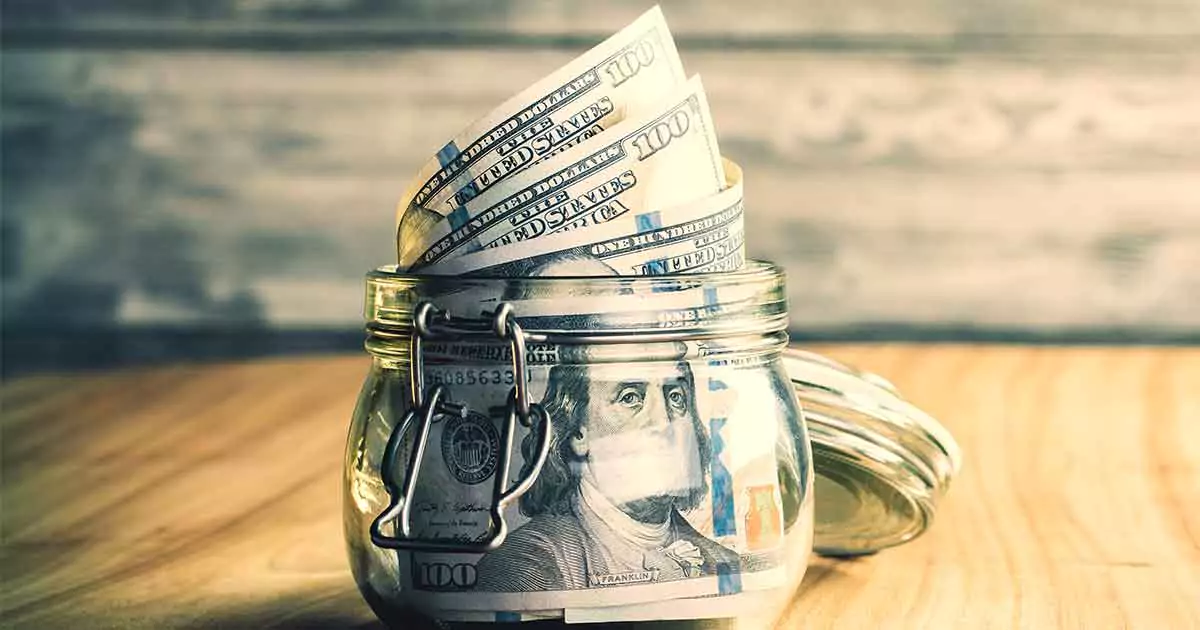
20 Proven Ways to Spend Less Money and Save More
Debt is not uncommon. In fact, more than 300 million Americans manage debt in some form or another. This ranges from mortgages and car payments to revolving credit cards and retail accounts. And while the average person carries thousands in debt, over 30% of Americans couldn’t handle a $1,000 emergency expense.
Of course, most people want to save money. But at the end of their pay cycle, there’s nothing left to save. Where does the money go? How do people get out of their debt burden? Where can we find extra money to stash away into savings?
The recipe for handling your debt burden requires you to spend less money and save more. Will it be easy? No. Will it be worth it? Absolutely. Here’s a bit of practical advice below.
Start by Investigating Your Spending
Spending money has never been so easy. With the ability to save credit card information on most major online retail accounts, spending is basically effortless. In fact, most consumers aren’t even aware of exactly where and how much they spend.
The first step to solving your personal debt situation is to understand where your money goes. Here are 3 easy steps to this.
- Find an app for budget analysis and managing your money.
- Understand exactly where your dollars go each month.
- Decide where you can spend less money.
Here Are a Few Opportunities to Spend Less Money
Find Food for Less
1. Shop the Walls
Buying fresh produce, dairy, and meats (located along the walls of most grocery stores) can be less expensive, stretches farther than just one meal, and is also better for you.
2. Plan Your Meals
By planning your meals each week, you can buy only what you need for those meals. This way, you can track your spending easier.
3. Make Your Own
Make your own breakfasts, lunches, dinners, snacks, and coffees to maximize those opportunities to spend less money. By packing a lunch instead of grabbing it from fast food or restaurants, you can save up to $12-15 a day. That’s $240-$300 a month.
4. Collect Coupons
Sign up for your local grocery coupons and rewards programs to save even more money on food costs. Also, try out a few coupon apps to earn rewards online.
Easy Entertainment Options
Going out is a treat. And you deserve to treat yourself. Here are a few small changes to help you spend less money and improve your entertainment enjoyment.
5. Main Courses Only
Skip appetizers and drinks. Have coffee and dessert at home. These extras can often double or even triple your tab.
6. Fun at Home
Planning to have a few drinks with friends? Why not stay at home? A few drinks at the bar can average over $40 per person.
7. Watch a Matinee
Daytime shows can cost nearly half the price of evening movies.
8. Go Local
Become a tourist in your own city. Hop online and find some free and fun local events and activities.
Save on Your Utilities
9. Cut the Cable
Do you absolutely need cable? These companies charge a premium for commercial programming and you can still get network shows on streaming services like Hulu for a fraction of the price.
10. Check for Promotions
See if your internet provider has promotional pricing. These companies are in vicious competition for your business. If you call and ask, most of the time, they can give their introductory rate as a way to keep your business.
11. Compare Mobile Plans
There are a large number of smaller cell phone companies offering rock-bottom prices for no-contract monthly plans. They lease the larger companies’ networks, so you are getting the same service for a smaller price.
12. Conserve Resources
Monitor your electricity and water usage. Turning off lights, turning the thermostat down in the winter, unplugging devices when not in use, and hand washing dishes can reduce home utility bills and your carbon footprint.
Evaluate Other Bills
There are monthly bills and necessary expenses you just can't avoid. Living and working expenses provide your family with shelter and future income. And while these expenses are priority, you can still find ways to optimize them.
13. Find Lower Rates
Have you considered refinancing your home or car? Interest rates are at an all-time low and a single point drop in your mortgage interest rate can possibly save you around $100 a month.
14. Join Loyalty Programs
Sign up for gas loyalty points. Most gas stations offer pump rewards that are much better than cashback rewards from major bank cards.
15. Check Your Tires
Did you know driving on a deflated tire can cost you dollars each trip in gas, as well as early tire replacement costs?
Rules for Retail Shopping
We spend a large part of our incomes in the retail market. This is also the space where we lose most of the money we could’ve saved due to poor spending habits and badly managed credit accounts.
First, evaluate each purchase. Do you absolutely need it? Is it for work or recreation? Can you wait 10 days and see how you feel? If it’s a larger purchase, wait 30 days. If you decide after this evaluation that you still want to make the purchase, follow these simple steps to spend less money.
16. Wait if You Can
Sales come and go. There will always be another. So, if you can, wait to make impulse purchases.
17. Sell Unwanted Items
Perhaps you can sell something you already own. You can make a little money to save or make room for necessary purchases. Here are ideas on how to sell unwanted and unused items.
18. Consider Quality
Consider buying quality items that last longer for important purchases. For example, shoes that cost $20 and last a few months actually cost more money than shoes that cost $50 and last a few years.
19. Shop Thriftily
Try to find second-hand items at thrift stores or use online resale sites and apps. You may be able to save more than half off retail costs.
20. Do It Yourself
Whenever you can, try to mend, repair, or DIY before making a retail purchase. Remember, YouTube is a lifesaver!
Need Some Extra Cash?
Sometimes, you just need an extra boost. Perhaps you’ve encountered an emergency. Or, you need to make ends meet until payday. Either way, let Check Into Cash ease your situation.
Learn About Installment Loans
An Installment Loan is a longer term loan that offers higher dollar amounts. You can pay it back over a longer period of time with lower payments over terms ranging a few weeks to a few months.
Try a Payday Loan
Need a small, quick loan? A Payday Loan is a small-dollar, short-term personal loan used to help a person with unexpected expenses. Payday Loans generally range from $50–$500, depending on your area, and are not intended to be used on large purchases.
Think About Title Loans
Do you own your car? If so, depending on the vehicle and other factors, you could access loan amounts up to $25,000 with a Title Loan, depending on your area.
Simply bring the clear title of your vehicle and a few other documents, like proof of income and photo ID, depending on your state. Check Into Cash keeps you on the road with an easy emergency loan process and fast cash for your lien-free, titled vehicle.
Smart consumers want to spend less and save more. While this is difficult, if you make a plan and follow it closely, you can pay down debt and eventually save money. If you need, remember that Check Into Cash is here to help deliver the funds you need.
Not all consumers may qualify for loan products noted above; certain restrictions apply. All products and services not available in all states or stores. Rules, fees and limits apply. See store for details.
California: In California, deferred deposit loans are provided in accordance with the Department of Financial Innovation pursuant to California Deferred Deposit Transaction Law, Cal. Fin. Code §23000 et seq.
[custom-facebook-feed]
The information provided on this website does not, and is not intended to, constitute legal or financial advice. Rather, all information, content, and materials available on this site are only meant for general informational purposes. Information on this website may not include the most up-to-date legal, financial or other information. This website contains links to other third-party websites. Such links are only for the convenience of the reader, user or browser. We do not recommend or endorse the contents of the third-party sites nor are the owners of such third-party sites recommending or endorsing our services. Check Into Cash is not affiliated with nor endorsed by any of the websites, companies or entities mentioned in this blog. See a licensed attorney for legal advice and see a certified public accountant or financial planner for financial advice. No reader, user, or browser of this site should act or refrain from acting on the basis of information on this site without first seeking professional advice. All liability with respect to actions taken or not taken based on the contents of this site are hereby expressly disclaimed. The content on this posting is provided “as is,” and no representations are made that the content is error-free.




